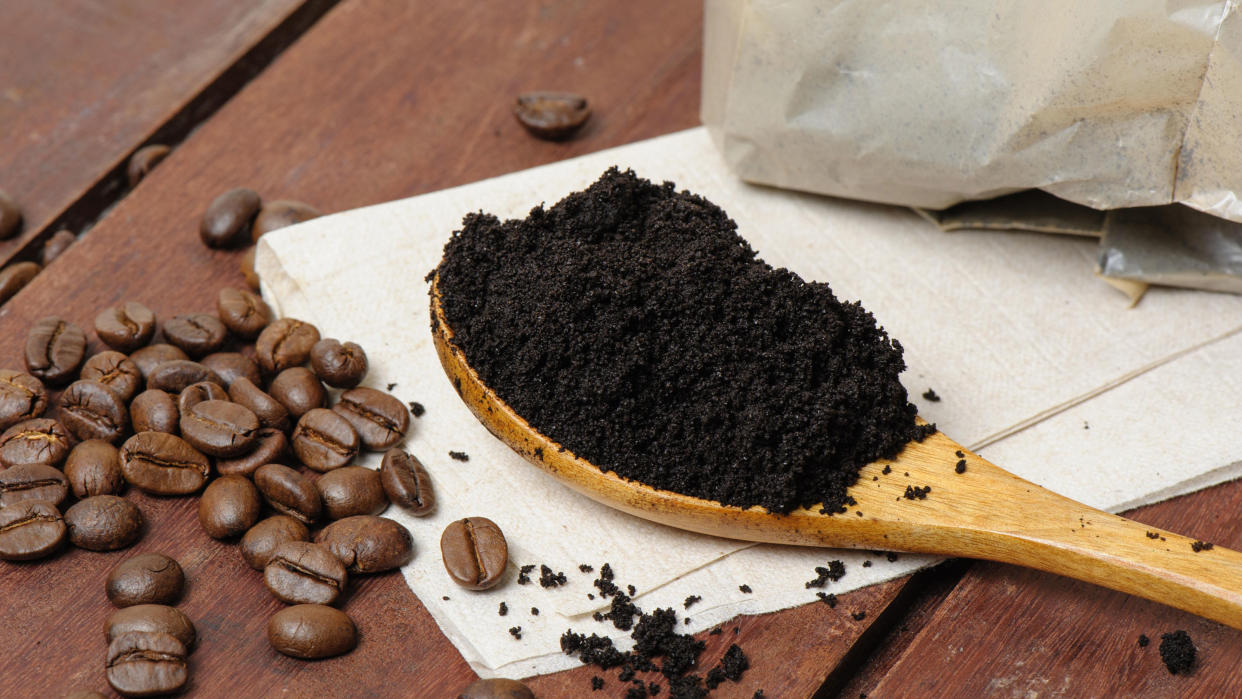Does burning coffee grounds help dispel mosquitoes? Experts weigh in

With summer upon us, we want to be able to enjoy our outdoor space without the fear of mosquitoes intruding.
Luckily for us, there are many different ways to get rid of mosquitoes, ranging from mosquito-repellent plants, such as citronella, to synthetic products like DEET.
One thing we're willing to bet you have in plentiful supply is used coffee grounds, and some say burning them can help send mosquitoes on their way.
Does burning coffee grounds repel mosquitoes?
But just how effective is this method? We look into whether burning coffee grounds can work just as well as other techniques.

Diana Cox, the founder of TheGardeningTalk.com explains that burning coffee grounds works by masking the scents that attract mosquitoes, making it more difficult for them to locate their targets.
‘Whether fresh, used, or burnt, all types of coffee have repellent properties. Burning coffee grounds, in particular, intensifies their aroma and effectiveness,’ she says.
When strategically burned or dampened and placed in specific areas, coffee grounds release a scent that disrupts mosquitoes' ability to locate humans. This can create a barrier and discourage mosquitoes from entering treated areas. However, it is important to note that coffee grounds should be used as an additional measure alongside other mosquito control methods for optimal results.
Should you use coffee grounds to repel mosquitoes?
Utilizing used coffee grounds or even fresh coffee grounds to enhance your outdoor living not only saves you money on repellents such as citronella candles and expensive bug zappers, but it's also a natural defense avoiding harsh chemicals that are too often used in pest control.
It's worth noting that there is limited scientific evidence supporting coffee grounds' ability to repel adult mosquitoes. However, there is some evidence that burnt coffee grounds can prevent the growth of mosquito larvae, says Nicole Carpenter, CEO of Black Pest Prevention.
Inhibiting the growth of mosquito larvae is an essential step in preventing the recurrence of mosquitoes in your home. Reducing the number of larvae leads to fewer adult mosquitoes that can become infected and spread nasty diseases.

Tips for using coffee grounds to get rid of mosquitoes
There are a few different ways to use coffee grounds for mosquito control, these can be used in combination to maximize effectiveness.
The first step is to prepare your coffee grounds: you can use fresh ground coffee, at Amazon, brewed or burnt. ‘One way to enhance the coffee's natural aroma is to brew the grounds multiple times,’ says David Blue, Co-Founder and President of Mozzie Dome Pest Control.
Once burnt, use the grounds in a number of ways, including sprinkling them throughout your yard or around a specific area such as your pool or porch. You can also add the grounds to boiling water to create a spray. Let the liquid reduce to make the spray more concentrated and now you have a natural mosquito repellent you can use inside the home as well.
FAQs
Does burnt coffee grounds help deter other bugs?
Yes, it has been reported that a number of insects and bugs do not like the smell of burnt coffee including slugs, bees, wasps, and snails. They are also said to help get rid of ants, so you can use your burnt coffee grounds to get rid of a number of unwanted pests this summer.
Burning coffee grounds can aid in repelling mosquitoes by emitting a strong aroma that interferes with their ability to locate their targets. The biggest plus side is that it is a readily accessible item that you can grab after your morning cup and deter these pests at the same time.
Coffee grounds are also a great way to boost the natural growth of your plants, so this mosquito-repelling method may leave your plants looking extra healthy and verdant. But if you want to maximize your chances of deterring these flies, use coffee grounds in conjunction with other methods.

